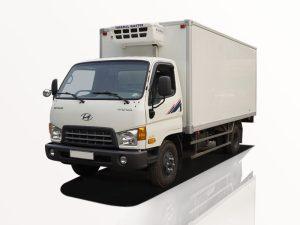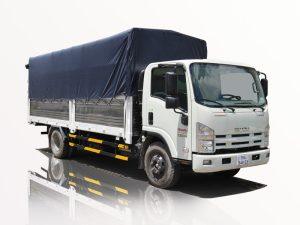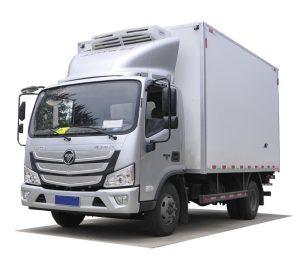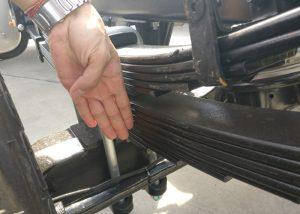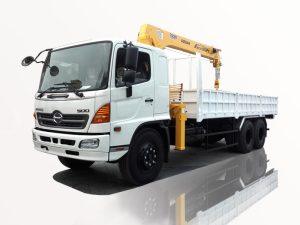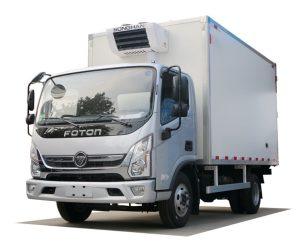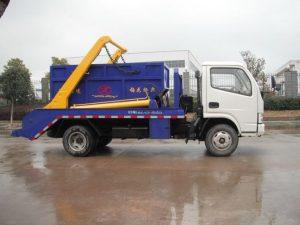Monday to Saturday - 8:00 -17:30
Everything You Need to Know About Trash Pickup Trucks
Trash pickup trucks play a vital role in waste management systems around the world. They are essential in maintaining cleanliness in our communities and ensuring responsible waste disposal. In this comprehensive guide, we’ll delve into the world of trash pickup trucks, covering their types, design, operation, benefits, innovations, and more. Let’s explore how these vehicles help shape our urban landscapes and keep our environments healthy.
What is a Trash Pickup Truck?
A trash pickup truck is a specialized vehicle designed for collecting and transporting waste materials such as residential trash, recycling, and bulk waste. These trucks are key components in the refuse collection industry and come equipped with various features tailored to enhance efficiency, safety, and performance.
The Importance of Trash Pickup Trucks
Trash pickup trucks are indispensable in maintaining public health and sanitation. They help reduce litter, prevent the spread of disease, and contribute to community aesthetics. By facilitating proper waste disposal, these trucks play a crucial role in promoting environmental sustainability.
Types of Trash Pickup Trucks
There are several types of trash pickup trucks, each designed for specific functions and types of waste. Understanding these types can help communities choose the right vehicles for their waste management needs.
1. Rear Loader Trucks
Rear loader trucks are commonly used for residential waste collection. They feature a large opening at the rear, allowing workers to manually or mechanically load trash into the truck’s compartment. These trucks are known for their efficiency and ease of operation.
2. Front Loader Trucks
Front loader trucks are typically employed in commercial waste collection. They use a hydraulic system to lift waste containers from the front and empty them into the truck. These vehicles are ideal for large volumes of waste and allow for quick pickups.
3. Side Loader Trucks
Side loader trucks collect waste from the side of the vehicle, allowing for automated or manual loading. They are especially useful in narrow streets where rear loaders may struggle. They often come with robotic arms for improved efficiency.
4. Compactors
Compactor trucks are designed to compress waste, reducing its volume and making transportation more efficient. These trucks are widely used for large amounts of recyclable materials where space-saving is crucial.
Key Features of Trash Pickup Trucks
The effectiveness of trash pickup trucks relies heavily on their design and technology. Key features include:
1. Capacity
Trash trucks vary in capacity, typically ranging from 10 to 30 cubic yards. Choosing the right capacity ensures that trucks can handle the volume of waste generated by a community.
2. Hydraulic Systems
Many trash pickup trucks utilize hydraulic systems to lift and tilt containers. This system enhances productivity and safety, minimizing the risk of injury to workers.
3. Safety Features
Modern trash pickup trucks are equipped with safety features such as backup cameras, alarms, and visibility enhancements. These features help prevent accidents and protect both workers and pedestrians.
4. Eco-Friendly Technologies
With increasing environmental awareness, many trash pickup trucks now incorporate eco-friendly technologies, such as alternative fuel options and waste tracking systems to optimize routes and reduce emissions.
The Operation of Trash Pickup Trucks
Understanding how trash pickup trucks operate is crucial for communities looking to streamline their waste management processes.
1. Collection Schedule
Most communities establish a regular trash pickup schedule, typically once or twice a week. This schedule helps residents know when to put their trash out and assists waste management companies in planning their routes.
2. Route Optimization
Modern GPS and routing software allow trash pickup trucks to optimize their routes, which can lead to reduced fuel consumption and lower operational costs. This efficiency helps ensure timely pickups and reduces environmental impact.
3. Community Awareness
Educating the public about proper waste disposal and pickup schedules can significantly enhance the efficiency of garbage collection. Many municipalities run campaigns to inform residents about best practices for their trash and recyclable materials.
Benefits of Using Trash Pickup Trucks
Employing trash pickup trucks in waste management systems brings numerous benefits:
1. Public Health
Regular waste collection reduces the risk of pest infestations and the spread of diseases associated with untreated waste. Keeping communities clean ultimately improves public health.
2. Environmental Impact
Well-managed trash collection minimizes illegal dumping and littering, contributing to a healthier ecosystem. Efficient waste transport reduces greenhouse gas emissions through optimized routes.
3. Economic Efficiency
Investing in modern, efficient trash pickup trucks can lower labor costs, fuel consumption, and maintenance expenses. This efficiency can free up funds for other community resources.
Innovations in Trash Pickup Truck Technology
With ongoing advancements, trash pickup trucks are becoming smarter and more efficient. Some notable innovations include:
1. Smart Sensors
Equipped with smart sensors, modern trash pickup trucks can detect fill levels and optimize pick-up schedules in real-time. This technology helps in resource allocation and waste management efficiency.
2. Electric and Hybrid Models
As part of the movement toward sustainability, many municipalities are now investing in electric and hybrid trash pickup trucks that significantly reduce fossil fuel dependency and operational costs.
3. Automated Loading Systems
Robotics and automation are transforming how waste is collected. Advanced systems can load and empty containers without human intervention, thereby improving safety and efficiency.
Practical Tips for Residents
1. Follow Pickup Schedules
Ensure you know your local pickup schedule and adhere to it. Place your trash out the night before to avoid missing collection times.
2. Sort Your Waste
Separate recyclables from organic waste and general trash. This practice facilitates easier recycling and may lead to lower garbage fees.
3. Maintain Cleanliness
Keep the area around your trash bins clean. This practice prevents attracting pests and promotes a tidier neighborhood.
Frequently Asked Questions (FAQs)
1. How often do trash pickup trucks operate?
Most communities have a schedule for trash pickups, typically once or twice a week. However, the frequency can vary based on local regulations and waste volume.
2. What types of waste can I put in the truck?
You can generally dispose of household trash, recyclables, and yard waste. However, hazardous materials and bulky items may have special disposal requirements, so check local guidelines.
3. How does recycling work with trash pickup trucks?
Many trash pickup trucks are equipped to separate recyclables from regular trash. Residents are encouraged to sort their recyclables for more efficient processing.
4. What should I do if the trash pickup is missed?
If your trash is not collected as scheduled, contact your local waste management office. They can provide information about missed pickups and rescheduling.
5. Are there environmentally friendly trash pickup options?
Yes, many municipalities are investing in electric and hybrid trash pickup trucks, as well as optimizing routes to minimize emissions. Check with your local waste management for their sustainability initiatives.
6. Can I request a special pickup for large items?
Most waste management services offer special pickups for large or bulky items. It’s advisable to contact your local waste management office to schedule such pickups and find out about any potential fees.


